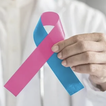
As with most diseases, there are risk factors associated with breast cancer. Risk factors can increase the chance of developing a condition. But having one or more risk factors does not mean you will get the disease. Many people have one or more risk factors for cancer but never get the disease.
Genetic factors and personal history
Sex and age : Women are more likely to develop breast cancer than men. The risk of breast cancer increases with age.
Family and personal history and genetics: Having a close family member (parent, sibling, child) who has received a diagnosis of breast cancer may be a sign to consult a specialist.
Reproductive factors: According to a 2017 study, starting menstruation before age 12 or going through menopause after age 55 may increase your risk of breast cancer. This is related to exposure to the hormone estrogen. Other contributing factors include not having children or having your first child after age 30.
“Dense” breasts: Breast density is a term that describes the amount of different types of breast tissue. Dense breasts have relatively high amounts of glandular tissue and fibrous connective tissue and relatively low amounts of fatty breast tissue. Having dense breasts can make it harder to detect lumps or abnormalities on a mammogram.
Previous radiation: Radiation to the chest area for another type of cancer in the past increases the risk of developing breast cancer.
Lifestyle factors
Unlike the risk factors described above, lifestyle risk factors are those that you have control over and can change.
Lack of a healthy diet
Weight: Being overweight or obese is a believed risk factor for breast cancer, especially in postmenopausal women. The increased risk is due to the fact that fat cells produce estrogen, which increases the amount of estrogen in the body.
Alcohol: Alcohol can increase levels of estrogen and other hormones linked to breast cancer. Alcohol can also damage the DNA of cells which, in turn, can increase the risk of cancer.
Hormone therapy: The use of hormone replacement therapy can increase the risk of breast cancer significantly, especially for therapy that includes both progesterone and estrogen.
For more information on Pink October, the month of awareness for early prevention of breast cancer, read the following articles:








